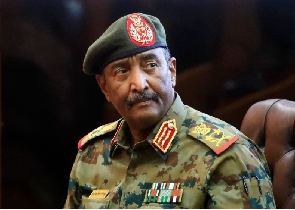Sudan’s junta has asked the UN Security Council (UNSC) to terminate the political mission in the country, escalating the bad blood between Khartoum and the global body.
A leaked letter addressed to the security council said Khartoum has decided to end the UN Integrated Transition Assistance Mission in Sudan (Unitams) immediately.
Al-Harith Idriss al-Harith, the Sudanese Permanent Representative to the UN in New York, said in a November 16 letter that he had received instructions from his Foreign Minister Ali al-Sadiq “to terminate the United Nations Integrated Transition Assistance Mission in Sudan with immediate effect”.
Read: Sudan rejects UN proposal to establish atrocities probe
The UNSC will now have to decide on the fate of the mission which replaced United Nations-Africa Union Hybrid Operation in Darfur (Unamid) in 2020 and was to help the country’s transition to civilian rule, something that has sort of stalled since October 2021.
But if the council’s mandate is terminated, it could put to rest a simmering dispute with Khartoum that saw the head of Unitams Volker Perthes resign in September after Sudan accused him of bias.
“I have had the privilege to serve as the United Nations Secretary General’s special representative for Sudan for more than two and a half years,” Perthes told an open briefing on Sudan at the council, New York in September.
“I am grateful to the secretary general for that opportunity and for his confidence in me, but I have asked him to relieve me of this duty.”
Sudan had warned that it could cut ties with Unitams if Perthes addressed the council session that September but held back after he quit. It had withdrawn diplomatic credentials for Perthes back in June after the junta accused him of bias and misleading reports on the peace bids in the country, long before the war erupted in April 15.
Sudan has been at war since April 15 when the Sudan Armed Forces clashed with the Rapid Support Forces, a paramilitary group. Since then, at least 9500 people have died and more than 5.3 million displaced.
In September, Perthes had turned to the council, the UN’s most powerful organ, “to impress on the warring parties that they cannot operate with impunity, and there will be accountability for the crimes committed.”
“Both sides are arbitrarily arresting, detaining, and even torturing civilians and there are reports of extrajudicial killings,” he said.
“Let me be clear, for the benefit of history, that regardless of who fired the first shot, both sides were clearly setting the stage for war. The warring parties chose to settle their conflict through fighting, and it is their duty to the Sudanese people to end it.”
Africa News of Friday, 17 November 2023
Source: theeastafrican.co.ke
Sudan asks UN to terminate political mission
Entertainment












